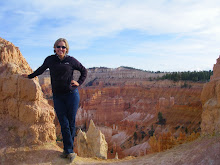They aren't your typical liberal environmentalists. No one has ever accused the Pope of being a tree-hugger. And yet, the Vatican announced this week that they are poised to become the world's first carbon neutral state. A Hungarian organization has donated 37 acres of a reforestation effort in a long degraded region of forest to the Catholic church, a gesture intented to compensate for the Vatican's electricity and transportation.
Cardinal Paul Poupard told the New York Times that "As the Holy Father, Pope Benedict XVI, recently stated, the international community needs to respect and encourage a ‘green culture'. The Book of Genesis tells us of a beginning in which God placed man as guardian over the earth to make it fruitful."
The idea of carbon "offsets" is relatively new, but it is quickly catching on globally. There are many differing "offset" solutions, but the basic idea is that you can support activities that take as much carbon dioxide out of the atmosphere as you put in, through heating your house, driving your car, and running your electronics. Some plans, like the Denali Green Tag project, invest your money in renewable energy production, like wind farms and geothermic heating projects. Other projects, like the restoration effort of which the newly christened "Vatican Climate Forest" is a part, plant trees and other natural vegetation. The plants use the carbon dioxide from the atmosphere in their growth and photosynthesis, which is why growing, healthy forests are considered a carbon sink. The restored forest is predicted to absorb ten times the carbon dioxide as the current weedy vegettion growing on the land.
It sounds like a great idea. The restoration project will provide jobs. The Vatican doesn't have to feel the guilt of contributing to global warming. The restoration company will make a profit if more companies and/or governments follow the Vatican's lead and invest in these carbon offset programs. So, what's the downside? Well, the science isn't yet settled on the long-term carbon impacts of reforestation. Although this particular restoration project in Hungary's Bükk National Park seems environmentally sound, others are charged with being nothing more than a green-washing propaganda scheme.
Russ George, the CEO of Planktos, the company running the restoration project, has praised the Vatican's environmental leadership. “Not only is the Vatican steadily reducing its carbon footprint with energy efficiency and solar power, its choice of new mixed growth forests to offset the balance of its emissions shows a deep commitment to planetary stewardship as well. It eloquently makes the point that eco-restoration is a fitting climate change solution for a culture of life," George told the Catholic News Agency.
Msgr. Melchor Sánchez de Toca Alameda, an official at the Council for Culture at the Vatican, told the Catholic News Service that buying credits was like doing penance. “One can emit less CO2 by not using heating and not driving a car, or one can do penance by intervening to offset emissions, in this case by planting trees,” he said. (NYTIMES)
This might be an occasion when we all, religious persuasions aside, might want to consider the Catholic Church's example. No, people aren't going to donate parks to us like the Vatican Climate Forest, which is valued at $130,000 in CO2 credits on the European market. But, we all need to think about the global costs of our contribution to the carbon dioxide problem. It's an abstract concept, pollution that's hard to put a price on; so these offset programs are a good starting point to think about the costs of our personal choices. How much to offset your daily commute, if invested in wind power? How many trees would be needed to use the CO2 emitted from your last flight? Sure, many of the carbon offset programs are simply trying to assuage your guilt and take your money, but many are offering a valuable service: putting a price on pollution and letting us find solutions to the growing global warming problem. Good for the Catholic Church for being a leader.
4 years ago

